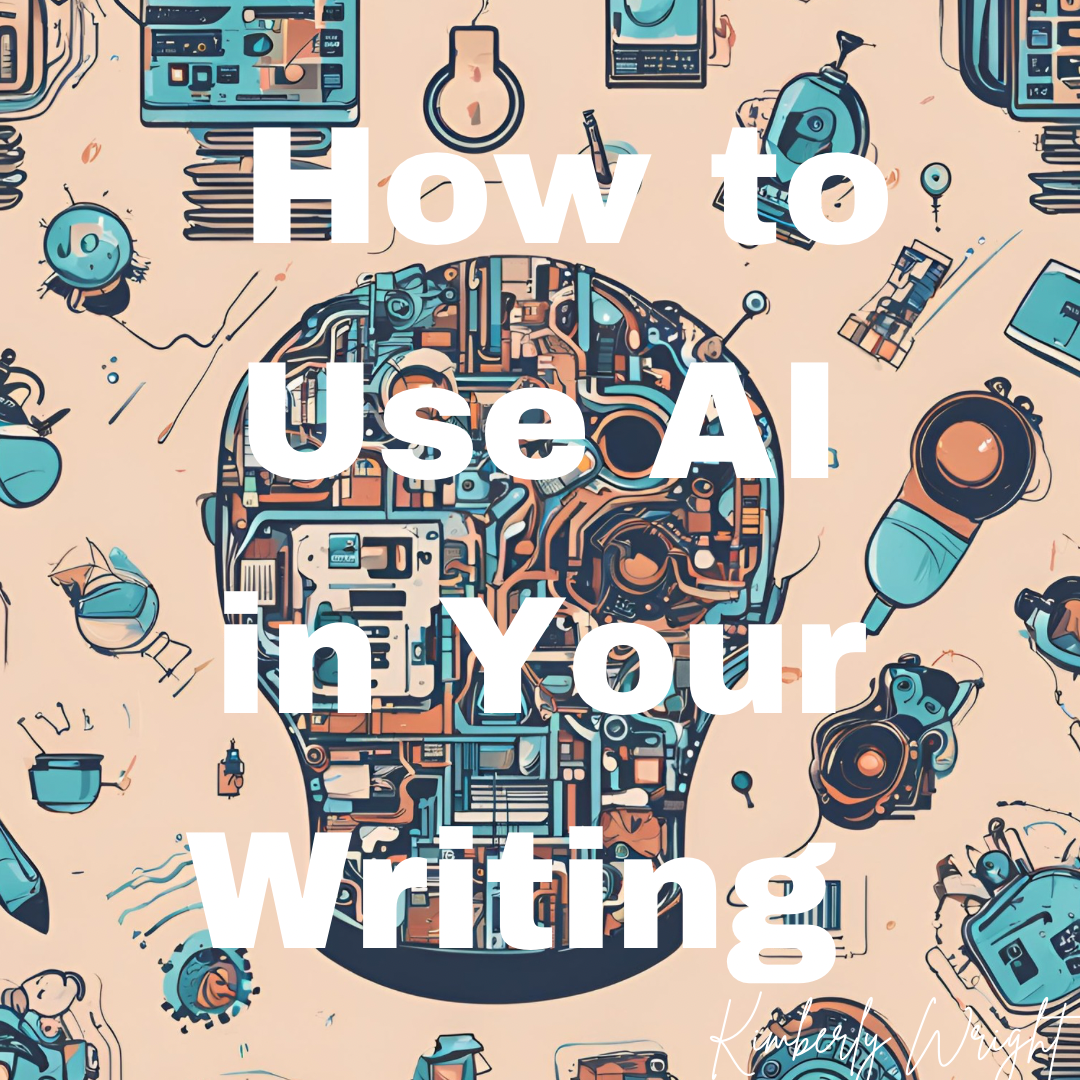While the fears about artificial intelligence keep rolling out, from generative A.I. fake profiles to accusations leveled at Open A.I. for stealing content, the benefits for responsible A.I. far outweigh not using it as a writer.
The controversy around A.I. keeps us paddling in deep waters as we look for a place to land on some level of truth.
Using artificial intelligence means using the next best writing tool of this century. While it seems that the kinks keep coming with A.I. that does not mean that they are not fixable.
Even when generating images to videos, A.I. spits out strange and interesting stuff that simply can be regenerated, or thrown out.
The general truth about A.I. remains that if you use the chat to ask questions or even create images, written content, or videos, you will never end up with the same content as other professionals.
Ways to Use A.I. in Your Writing
Using AI in writing can enhance productivity, creativity, and precision.
What must be understood if you have never used A.I. or you simply believe it to be evil is that A.I. is only as good as the user. While controversy surrounds the idea that A.I. steals other people’s content, using it solely as your writing robot simply will not work.
Remember that using A.I. becomes more like a summary of ideas, and come from informational aggregates of content from all over the world, and output the request you are making to your chat bot.
While you may hold a very real concern that A.I. steals content from other’s work, you may want to re-consider this idea.
In today’s content creation online, your work whether in a published book, article, or blog, influences the world. If you have written most of you books offline, this truth may have slipped past you.
Think about the Instagram or TikTok influencers that have taken our world by storm influencing our offline and online culture.
Capitalizing on this fact while searching for true copyright thieves, may help you find some level of peace with A.I.
Quick Tips
- Tell A.I. what your intention is when inputting content (i.e. I need this information for a business meeting)
- If you receive a bizarre result, rephrase the parameters of a request.
- Double check facts given by A.I., especially if you need answers in a field outside of your own.
- Maintain a factual information statement, versus an affective, relatable statement (unless you want some sort of therapy). For example if you need some level of psychology research for a book, tell A.I. that you need this for a book or article, versus for your own understanding.
So let’s jump in and see how you can improve your writing and communication using A.I.
Idea Generation and Brainstorming
- Prompting for Ideas: Use AI to generate topic ideas, angles, or perspectives. Provide a brief description of your topic, and ask the AI for potential themes, questions, or subtopics to explore.
- Mind Mapping: AI can help in organizing thoughts by creating outlines or mind maps. This is especially useful when dealing with complex subjects.
Overcoming Writer’s Block
- Kickstarting Content: If you’re stuck at the beginning of a project, use AI to draft the first few sentences or paragraphs. This can help break the inertia.
- Writing Prompts: Ask AI for creative prompts to spark new ideas or directions for your writing.
- Character Creation: Are you stuck on creating the rockstar character you desire in your next novel? Ask A.I. to spit out a couple of suggestions with your personal ideas.
Research Assistance
- Summarizing Information: AI quickly summarizes long articles, papers, or reports, giving you a condensed version to work from.
- Content Retrieval: Use AI to find relevant quotes, statistics, or examples that support your arguments.
Drafting and Editing
- First Drafts: Let AI draft a portion of your text. You can then refine and edit it to match your tone and style.
- Proofreading: AI tools can check for grammar, spelling, and punctuation errors. They can also suggest improvements in sentence structure, verb tenses, and word choice.
- Style Adjustment: If you need to write in a specific style or tone, AI can help adjust your text accordingly, making it more formal, casual, or technical as needed.
Enhancing Creativity
- Generating Metaphors or Analogies: AI can suggest creative ways to explain complex ideas through metaphors or analogies.
- Experimenting with Styles: Ask AI to rewrite sections in different styles, such as more poetic, concise, or persuasive, to see which resonates best with your audience.
- Creating Characters: Ask AI to help you generate characters for your fiction book or short story.
Feedback and Revision
- Receiving Feedback: Use AI to critique your work. It can highlight areas that may need further explanation or stronger arguments.
- Content Expansion or Condensation: If you need to expand on a point or condense a paragraph, AI can assist in either direction.
Content Personalization
- Tailoring Content: AI can help you tailor your writing for specific audiences by adjusting tone, formality, or language complexity.
- Localized Content: If writing for different regions or cultures, AI can help adapt your content to fit local preferences and norms.
SEO and Optimization
- Keyword Optimization: AI can suggest keywords or phrases that improve your content’s search engine ranking.
- Meta Descriptions and Titles: Generate compelling meta descriptions and titles that are optimized for clicks and engagement.
Collaborative Writing
- Co-authoring: Work with AI as a co-author, where you write some sections and the AI drafts others. This can speed up the writing process and introduce new ideas.
- Version Control: Use AI to track changes and manage different versions of your document, making collaboration smoother.
Learning and Improvement
- Analyzing Writing Style: AI can analyze your writing to identify patterns, strengths, and weaknesses, helping you to continuously improve.
- Writing Tutorials: Engage with AI-powered writing tutors that provide tips, exercises, and feedback to enhance your writing skills.
A.I. Remains a Writing Tool Assistant
AI can become a powerful ally in your writing process, helping you to be more efficient, creative, and precise.
Keep in mind that A.I. rightfully remains a computer bot and nothing else, fact checking and human editing help keep things in perspective.
While I know that ideas and concerns about how A.I. might take over different aspects of our day to day activities fuel the conversation online and off, the functionality of this new technology cannot overtake us all.
Sure, computers malfunction, but only as much as humans program them. Yes, things became more automated and results generate with the stroke of a few keys, but the direction that we take the information comes from our own minds and creativity.
Using these strategies helps you as a writer and assists you in creating better content faster and easier. But, what it does not do is replace you as the writer, who directs the flow of thought and ideas.

